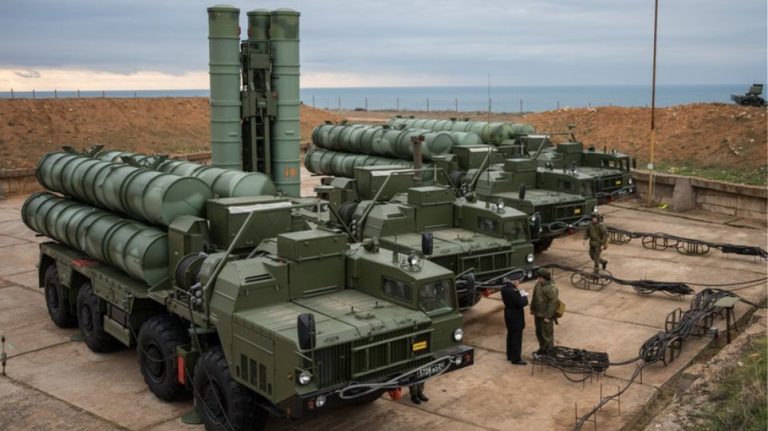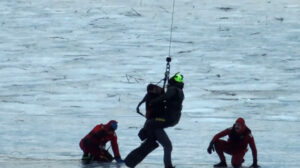When Russia began delivering the S-400 air defense systems to Turkey last summer, the NATO member country was almost in a festive mood, with television channels broadcasting live the arrival of cargo planes to an air base outside of Ankara from July to August. Around that time, President Recep Tayyip Erdogan announced the systems would become operational in April 2020 — a timetable he would confirm at least seven times thereafter despite US moves to dissuade and penalize Turkey. The missiles arrived by sea in December as Ankara was already testing the systems. In January, air force officers who received training in Russia on operating the systems were officially assigned to their new duties.
With April already rolling along, the S-400s remain unpacked at Murted Airfield Command. The way Ankara chose to disclose the “delay” was a low-key statement to Reuters. “There is no going back on the decision to activate the S-400s, [but] due to COVID-19 … the plan for them to be ready in April will be delayed,” an anonymous official told the news agency April 20.
The delay should have pleased Washington, though it reiterated its concerns. “We continue to stress at the highest levels that the S-400 transaction is the subject of ongoing CAATSA sanctions deliberations, and it remains a major obstacle in the bilateral relationship and at NATO,” State Department spokeswoman Morgan Ortagus said, referring to the Countering America’s Adversaries Through Sanctions Act. “We are confident that President Erdogan and his senior officials understand our position,” she added.
Pentagon officially releases UFO videos!
Obviously, the reason for Ankara’s decision to delay the activation of the S-400 regiment, made up of four batteries worth $2.5 billion, is not technical. And even though the coronavirus pandemic is cited as the reason, the decision is utterly political. Tellingly, the pandemic has not disrupted any Turkish military operations either at home or in Syria and Iraq. It has had no impact in military terms that requires postponing the activation of the systems.
Turkey’s worsening economic woes are widely seen as the prime reason behind the postponement. Indeed, any sanctions under CAATSA would heighten the grave economic risks the pandemic is posing to Turkey. Of note, Ankara has already approached the US Federal Reserve for a currency swap deal, seeking up to $10 billion amid a drawdown in foreign reserves. Due to domestic political concerns, Ankara is reluctant to seek help from the International Monetary Fund. In short, activating the S-400s could have a big economic cost for Turkey akin to the currency crisis in the summer of 2018, which was triggered by a row with Washington over the detention of an American pastor.
Ask me anything
Explore related questions





